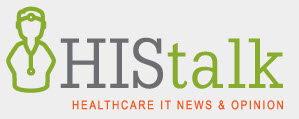01-08-2025, 12:52 AM
Milliman Report Concludes Together Senior Health's RADAR Algorithm Accurately Identifies Undiagnosed Cognitive Impairment
New claims-sourced RADAR models demonstrate positive predictive value
BOSTON, Jan. 7, 2025 -- Together Senior Health (Together), a Linus Health company, announces the release of a new report published by Milliman, a leading actuarial firm, that evaluates the accuracy of Together's Risk of Alzheimer's and Dementia AlgoRithm (RADAR) family of models when using claims-based data. The RADAR family of models is a proprietary cognitive-impairment identification and stratification algorithm developed by Together that allows health insurers and healthcare provider organizations to identify their members or patients at the highest risk for having undiagnosed Alzheimer's disease, dementia and cognitive decline.* Although RADAR is based on a validated model that was developed using electronic health record (EHR) data, the Milliman report shows that the algorithm can be adapted to utilize claims-based data and improved with the addition of new predictors.
Identifying undiagnosed dementia early and accurately using a standard set of well-defined inputs is a critical part of what Together is hoping to accomplish for health plans and health providers alike.
"Due to the historic care demands facing primary care practices today, providers and payers need to carefully triage which patients should first receive more in-depth cognitive impairment screenings, so those with higher risk can begin receiving preventive interventions as soon as possible," said Deborah E. Barnes, PhD, MPH, co-founder of Together. "RADAR offers payers and providers a quick, highly efficient method for identifying their patients with the highest risk of having undiagnosed dementia. Most importantly, RADAR is highly accurate, according to the results of this thorough analysis from Milliman."
Milliman evaluated the predictive probability of the new RADAR family of models and stated in their report that "all the models perform reasonably well" under various statistical metrics. Milliman measured the model performance across several measures, including sensitivity, specificity and positive predictive value, demonstrating that each model performed similarly to the previously established eRADAR model, especially when refitting to the new claims-based predictors. Milliman's report concluded that "[w]hen using claim-based predictors, accuracy for predicting the risk of undiagnosed dementia is significantly improved by refitting the model to reweight the predictors." Milliman also evaluated several new predictors for the RADAR models and said in their report "[u]sing more potential predictors and allowing more flexibility in which predictors are selected results in statistically significant improvements."
In fact, the predictive performance of the RADAR algorithm is twice as high as mammography and three times that of colonoscopy, according to John Showalter, MD, MSIS, chief strategy officer at Linus Health and an internal medicine physician specializing in dementia.
"The evidence clearly demonstrates that the gold standard for breast and colorectal cancer screenings yield predictive results on par with the refit RADAR model," Showalter said. "RADAR, however, is far superior in that it does not require any patient time, discomfort, or involvement at all, nor is it anywhere near as costly as these common, guideline-directed procedures. It seems clear that providers and payers would improve patient outcomes as well as costs and operational efficiency by incorporating RADAR into their preventive care protocols."
Mike Butler, former president of Providence Health and a newly appointed independent board director of Linus Health, said: "Health systems want to do the right thing to care for their aging patients, but struggle with targeting cognitive assessments to the right people. The RADAR algorithm is a game-changer, especially for Medicare Advantage plans and value-based care providers.
"Based on my decades of experience overseeing value-based care and risk-based contracts, RADAR's ability to rapidly stratify populations for undiagnosed cognitive impairment is transformative," Butler added. "Its ability to drive proactive care and diagnoses, combined with Linus Health's digital assessments and clinical insights and decision support, enable payers and providers to secure more accurate and appropriate risk-adjustment results that support quality care."
*Research reported in this publication was supported by the National Institute on Aging of the National Institutes of Health under Award Number R44AG082605. The content is solely the responsibility of the authors and does not necessarily represent the official views of the National Institutes of Health.
About Linus Health
Linus Health is a Boston-based digital health company focused on transforming brain health for people across the world. By advancing how we detect and address cognitive and brain disorders – leveraging cutting-edge neuroscience, clinical expertise, and artificial intelligence – our goal is to enable a future where people can live longer, happier, and healthier lives with better brain health. Linus Health's digital cognitive assessment platform delivers a proven, practical means of enabling early detection; empowers providers with actionable clinical insights; and supports individuals with personalized action plans. We are proud to partner with leading healthcare delivery organizations, research institutions, and life sciences companies to accelerate more proactive intervention and personalized care in brain health. To learn more about our practical solutions for proactive brain health®, visit www.linushealth.com or follow us on LinkedIn.
Media Contact
Tara Stultz (Amendola for Linus Health)
440-225-9595
tstultz@acmarketingpr.com
SOURCE Linus Health




